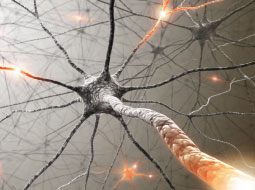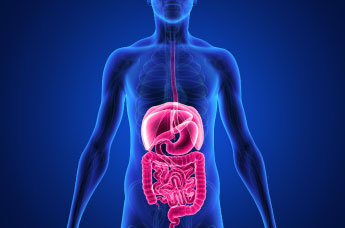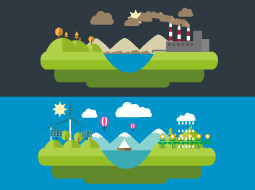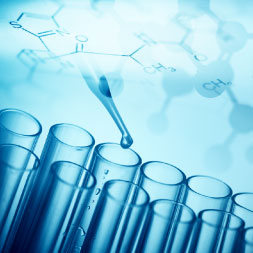Online courses directory (423)
This comprehensive biology course introduces a broad range of biology subjects including molecular biology, gene, cell biology, organic and inorganic compounds, experimental methods and designs, regulatory mechanisms in plants and animals, pathogens and parasites and more. This free online course builds on our Introductory Biology course. It is particularly suitable for any student of biology at second level, or anyone who wants to gain more knowledge and understanding of the biological world around us.
An introduction to computational theories of human cognition. Emphasizes questions of inductive learning and inference, and the representation of knowledge. Project required for graduate credit. This class is suitable for intermediate to advanced undergraduates or graduate students specializing in cognitive science, artificial intelligence, and related fields.
The aim of this class is to introduce the exciting and often under appreciated discoveries in RNA biology by exploring the diversity of RNAs—encompassing classical molecules such as ribosomal RNAs (rRNAs), transfer RNAs (tRNAs) and messenger RNAs (mRNAs) as well as newer species, such as microRNAs (miRNAs), long-noncoding RNAs (lncRNAs), and circular RNAs (circRNAs). For each new class of RNA, we will evaluate the evidence for its existence as well as for its proposed function. Students will develop both a deep understanding of the field of RNA biology and the ability to critically assess new papers in this fast-paced field.
This course is one of many Advanced Undergraduate Seminars offered by the Biology Department at MIT. These seminars are tailored for students with an interest in using primary research literature to discuss and learn about current biological research in a highly interactive setting. Many instructors of the Advanced Undergraduate Seminars are postdoctoral scientists with a strong interest in teaching.
Alcohol is enjoyed by many people during social occasions, but for others addiction to alcohol or alcohol-related illnesses can be a serious health issue. This free online course begins by reviewing the biological effects of alcohol on the body, including hangovers, psychological, and physical disturbances. The course also looks at the effects of chronic alcoholism such as liver damage or fetal alcohol syndrome. Finally, the course reviews some of the treatments for alcohol-related illnesses. This course is ideal for anyone who wants to learn more about the effects alcohol can have on their health, or for learners already working in the areas of health promotion or health awareness who want to further their knowledge and understanding of the health effects of excess alcohol consumption.
The human body cannot generate energy itself and so must obtain it from external sources. Energy from the sun is captured by plants, which in turn are eaten by animals. We humans use these plants and animals as food sources but, in order to obtain the energy we require from them, our food must be broken down into smaller molecules that the body can process. This is accomplished by a complex series of organs known as the digestive system. This free online human physiology course provides a clear introduction to the human digestive system. In this course you will learn how energy is obtained from food and be introduced to the different food types and vitamins. The course looks at the stages involved in ingestion and swallowing, describing how the stomach is designed for food storage and the initial processing of food. How the small and large intestines are structured to facilitate the digestion and absorption of nutrients is also examined. The course also provides an overview of the elimination of the waste products of digestion from the body. It outlines the special roles played by the liver and pancreas in the secretion of digestive enzymes. The mechanisms used by the digestive system to protect the body from infection are covered. This includes looking at the tonsils and other lymphoid tissue in the small and large intestine and explaining how the mammary gland protects the breastfeeding baby from infection. This free online human physiology course will be of great interest to healthcare professionals who would like a greater understanding of the human digestive system and its importance in human physiology, and to students of biology, medicine and nursing who would like to gain a greater knowledge and understanding of the structure and function of the human digestive system. <br />
This course serves as an introduction to the structure and function of the nervous system. Emphasis is placed on the cellular properties of neurons and other excitable cells. Topics covered include the structure and biophysical properties of excitable cells, synaptic transmission, neurochemistry, neurodevelopment, and the integration of information in simple systems and the visual system.
Biology 101: Intro to Biology is designed to be used to prepare you to earn real college credit by passing the Biology CLEP exam . This course covers topics that are included on the exam, such as genetics, physiology, plant and animal biology, ecology and evolution. Use it to help you learn what you need to know about biology topics to succeed on the exam.
The biology instructors are experienced and knowledgeable educators who have put together comprehensive video lessons in categories ranging from Mendel's first law to the anatomy of the brain. Each category is broken down into smaller chapters that will cover topics more in-depth. These video lessons make learning fun and interesting. You get the aid of self-graded quizzes and practice tests to allow you to gauge how much you have learned.
This course deals with a more advanced treatment of the biochemical mechanisms that underlie biological processes. Emphasis will be given to the experimental methods used to unravel how these processes fit into the cellular context as well as the coordinated regulation of these processes. Topics include macromolecular machines for energy and force transduction, regulation of biosynthetic and degradative pathways, and the structure and function of nucleic acids.
This subject will be an intensive introduction to neuroanatomy, involving lectures, demonstrations, and hands-on laboratories, including a brain dissection. The course will not assume any prior knowledge of neuroanatomy, though some general knowledge of brain structures will be helpful.
This is an undergraduate introductory laboratory subject in ocean chemistry and measurement. There are three main elements to the course: oceanic chemical sampling and analysis, instrumentation development for the ocean environment, and the larger field of ocean science.
This course is offered through The MIT/WHOI Joint Program. The MIT/WHOI Joint Program is one of the premier marine science graduate programs in the world. It draws on the complementary strengths and approaches of two great institutions: the Massachusetts Institute of Technology (MIT) and the Woods Hole Oceanographic Institution (WHOI).
This course details the quantitative treatment of chemical processes in aquatic systems such as lakes, oceans, rivers, estuaries, groundwaters, and wastewaters. It includes a brief review of chemical thermodynamics that is followed by discussion of acid-base, precipitation-dissolution, coordination, and reduction-oxidation reactions. Emphasis is on equilibrium calculations as a tool for understanding the variables that govern the chemical composition of aquatic systems and the fate of inorganic pollutants.
This course is offered through The MIT/WHOI Joint Program. The MIT/WHOI Joint Program is one of the premier marine science graduate programs in the world. It draws on the complementary strengths and approaches of two great institutions: the Massachusetts Institute of Technology (MIT) and the Woods Hole Oceanographic Institution (WHOI).
This free online course in Chemistry looks at elements, electrochemistry and food chemistry among other topics. It is an ideal course to engage students and help them grapple with the subject matter in an interactive and self-paced manner. It is particularly suitable for any student of chemistry at second level, or anyone who wants to gain more knowledge and understanding of the world of chemistry.
This course introduces students to climate studies, including beginnings of the solar system, time scales, and climate in human history. It is offered to both undergraduate and graduate students with different requirements.
Introduction to Oceanography is a class that provides a general introduction to geological, physical, chemical, and biol
This free online diploma course is ideal for professionals working in the area of environmental science, for students who wish to pursue a career in environmental science, or for those who simply want to learn more about building a sustainable existence on this planet.<br /><br />Environmental science is the field of science that studies physical, chemical and biological aspects of the environment and determines solutions to environmental problems.<br /><br />Gain thorough knowledge and understanding of environmental science such as understanding the earth's processes, evaluating alternative energy systems, pollution control and mitigation, natural resource management, the importance of global water supplies, and the effects of climate change.<br />
This Physical Education (PE or Phys Ed) course offers a comprehensive introduction to the topic and investigates the basics: from muscle response to the physiology, biology, and the science of sports. It covers the scientific basis of fitness and concludes with training principals and methods. It is an ideal course for those studying for a qualification in health or fitness or for sports enthusiasts. It is also an excellent resource for trainers or managers in fitness, health or sports related activities. <br />
This course is an introduction to computational theories of human cognition. Drawing on formal models from classic and contemporary artificial intelligence, students will explore fundamental issues in human knowledge representation, inductive learning and reasoning. What are the forms that our knowledge of the world takes? What are the inductive principles that allow us to acquire new knowledge from the interaction of prior knowledge with observed data? What kinds of data must be available to human learners, and what kinds of innate knowledge (if any) must they have?
<p>This free online course offers a simple introduction to basic chemistry and is ideal as a study aid for secondary school students or anyone interested in learning the basics of chemistry. </p><br /> <p>Topics covered include the periodic table, atoms and molecules, the pH scale and experimental design and techniques. </p>
This course deals with the specific functions of neurons, the interactions of neurons in development, and the organization of neuronal ensembles to produce behavior. Topics covered include the analysis of mutations, and molecular analysis of the genes required for nervous system function. In particular, this course focuses on research work done with nematodes, fruit flies, mice, and humans.
This course considers the process of neurotransmission, especially chemicals used in the brain and elsewhere to carry signals from nerve terminals to the structures they innervate. We focus on monoamine transmitters (acetylcholine; serotonin; dopamine and norepinephrine); we also examine amino acid and peptide transmitters and neuromodulators like adenosine. Macromolecules that mediate neurotransmitter synthesis, release, inactivation and receptor-mediated actions are discussed, as well as factors that regulate their activity and the second-messenger systems and ion fluxes that they control. The involvement of particular neurotransmitters in human diseases is considered.
Trusted paper writing service WriteMyPaper.Today will write the papers of any difficulty.






















